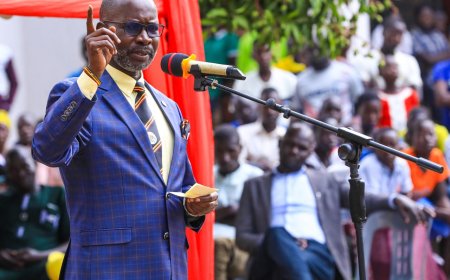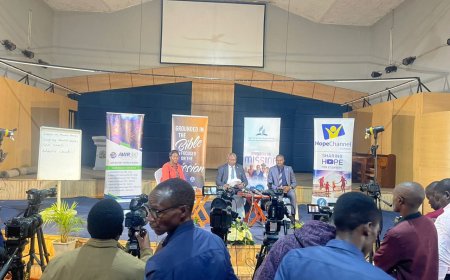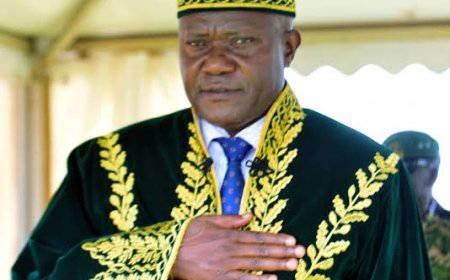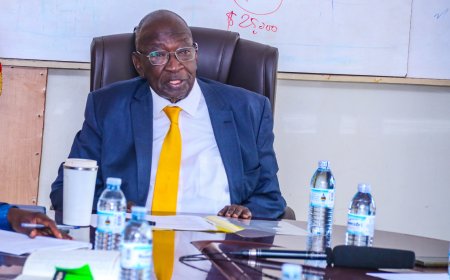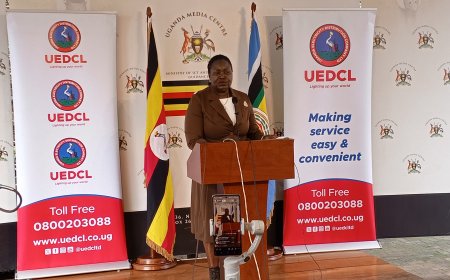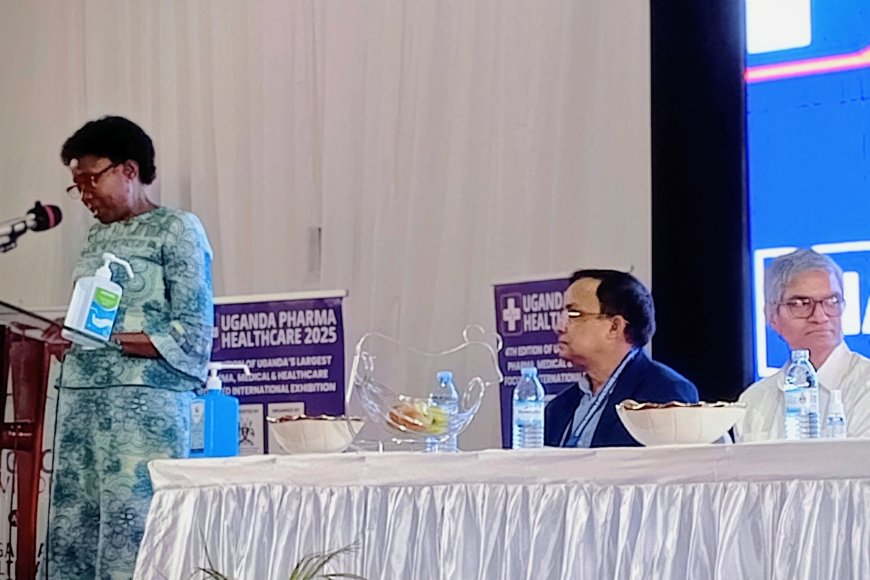Uganda Steps Up HIV Fight as UAC Chairperson Issues Appeal Ahead of World AIDS Day
Speaking at a media briefing held at the Uganda Media Centre, the UAC Board Chairperson, Canon Dr. Ruth Senyonyi, highlighted Uganda’s progress, challenges, and priorities as the nation races toward the global target of ending AIDS as a public health threat by 2030.
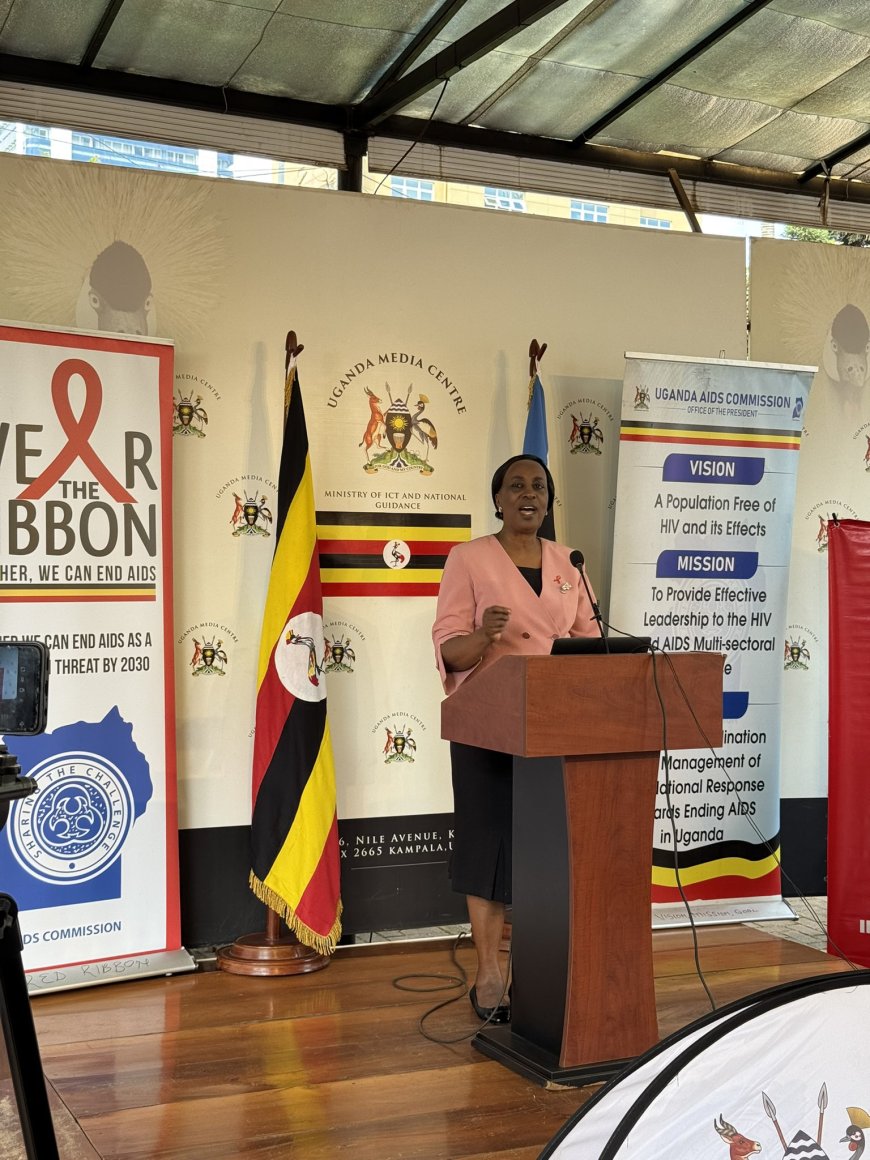
The Uganda AIDS Commission (UAC) has urged all national stakeholders to intensify their efforts in the fight against HIV and AIDS as the country prepares for the 2025 National HIV and AIDS Symposium and World AIDS Day commemorations. Speaking at a media briefing held at the Uganda Media Centre, the UAC Board Chairperson, Canon Dr. Ruth Senyonyi, highlighted Uganda’s progress, challenges, and priorities as the nation races toward the global target of ending AIDS as a public health threat by 2030.
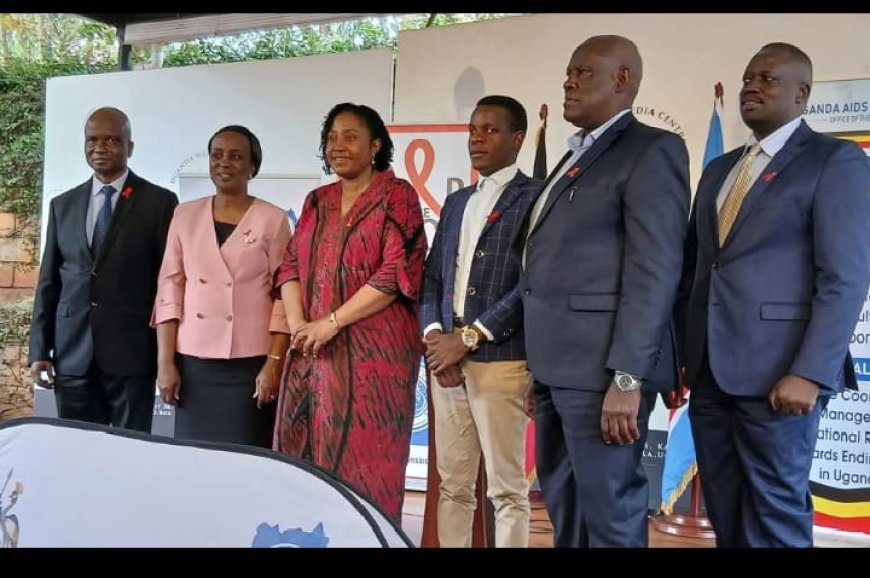
UAC’s Mandate and the Purpose of the Symposium
Canon Dr. Senyonyi reaffirmed the Commission’s mandate as established by Parliament—to provide strategic leadership, coordinate multi-sectoral stakeholders, and guide national policies aimed at reducing new HIV infections and ensuring wider access to care and treatment. While UAC does not implement services directly, it plays a central role in mobilizing resources and aligning national interventions.
The National HIV and AIDS Symposium, convened annually, serves as a key platform where government, development partners, civil society, academia, and communities take stock of the country’s progress. This year’s gathering, running from November 26–28 at Mbarara University of Science and Technology, will operate under the theme: “Building a Sustainable Response to End AIDS as a Public Health Threat.”
It will feature the 17th Joint AIDS Review, the National Scientific Meeting, Philly Lutaaya Day, the HIV Financing Dialogue, and various exhibitions offering HIV testing and other health services.
Progress Registered and Uganda’s Success Story
Uganda remains globally recognized for its multi-sectoral HIV response, which has delivered significant results. The Chairperson noted that the national HIV prevalence rate has fallen dramatically—from 18% in the 1980s to 4.9% today—a milestone attributed to coordinated action across communities, government, and development partners.
However, despite notable achievements, challenges persist.
Emerging Challenges: Risky Behaviour and Unmet Needs
Canon Dr. Senyonyi expressed concern about increasing risky sexual behaviours, particularly among young people, including multiple sexual partnerships, reduced condom use, and declining age of sexual debut. Other persistent gaps include stigma, low uptake of couple testing, and a substantial number of men who remain unaware of their HIV status.
“These realities threaten to reverse the gains made over the last four decades,” she cautioned.
Fast-Tracking the Presidential Initiative
She emphasized the relevance of the Presidential Fast Track Initiative to End AIDS, launched in 2017 by President Yoweri Kaguta Museveni. The initiative outlines five pillars:
1. Increasing male involvement and reducing new infections among adolescents and young women.
2. Accelerating Test and Treat while meeting the global 95-95-95 targets.
3. Strengthening efforts to eliminate mother-to-child transmission (eMTCT).
4. Ensuring sustainable financing for the HIV response.
5. Enhancing coordination for a robust, multi-sectoral response.
eMTCT: A High-Return Investment Area
A central focus of the Chairperson’s remarks was the urgent need to eliminate mother-to-child transmission. She revealed that 4,700 babies were born with HIV in 2025, a figure she described as unacceptable given the availability of preventive medication.
She called on men to support their partners during antenatal visits and delivery, noting that early detection and treatment can completely prevent mother-to-child transmission during pregnancy, birth, and breastfeeding.
Canon Dr. Senyonyi urged political, cultural, and religious leaders as well as civil society and the media to amplify messages promoting eMTCT.
The Role of Innovation and Research
Addressing the future of the national response, she underscored the importance of innovation and scientific research, especially in reducing new infections and AIDS-related deaths. She pointed to the anticipated rollout of new prevention options such as Lenacapavir, which could significantly change the landscape of HIV prevention.
She appealed to researchers and academic institutions to remain at the forefront of innovation to sustain progress.
Stigma and Discrimination: A Persistent Barrier
Reflecting on Philly Bongoley Lutaaya’s legacy, the Chairperson highlighted the strides made in reducing stigma, but stressed that discrimination—especially in employment—still exists. She called on the public to emulate Lutaaya’s example of openness and courage, emphasizing that stigma undermines testing, disclosure, and treatment adherence.
Financing Challenges and the Call for Prevention
With the national response heavily dependent on donor funding, Canon Dr. Senyonyi disclosed that it costs government UGX 700,000 per person annually to keep someone living with HIV on treatment. With over 1.3 million Ugandans on treatment, sustainable financing remains a critical concern.
She urged Ugandans to adopt preventive behaviours—abstinence, faithfulness, and consistent condom use—to reduce the financial strain on the national response. For those living with HIV, she emphasized the importance of strict adherence to treatment and avoiding unprotected sex with partners of unknown HIV status.
Appreciation and National Call to Action
Canon Dr. Senyonyi extended gratitude to the Uganda AIDS Commission, AIDS development partners, networks of persons living with HIV, academia, civil society, and cultural and religious leaders for their continued commitment.
As the country prepares for the 2025 National Symposium and World AIDS Day commemorations in Bushenyi, she encouraged all Ugandans—regardless of location—to make personal pledges. For those HIV-negative, she urged behavioural change to remain uninfected; for those living with HIV, she encouraged strict adherence to treatment for better health outcomes.
With less than five years to 2030, Uganda’s focus is clear: consolidate gains, invest in high-impact interventions, accelerate innovation, and intensify community-led efforts. The Board Chairperson’s message resounded with urgency and hope, reminding the nation that the end of AIDS is within reach—if collective action is sustained.


